However you write is the right way
to do it. Forget The Rules. If you plot out everything ahead of time, good for
you. If you sit down and write with no idea where the story is going, that’s
great too. I’m telling you this because what follows is my weird method and I’d
hate for you to think it’s The Right Way or The Only Way to go about it.
I’m about thirty thousand words
into The Night Creature. It will
probably be around sixty thousand words when complete, so that’s theoretically
half way through. Now I’m in what writer Jim Grimsley so accurately described
as ‘the murk in the middle of the novel.’ If you’re into the journey through
the woods metaphor, this is the moment when you lose sight of the forest for
the trees. The ending seems unreachable. Maybe by now the story bores you. You
fell out of love with it once you got to know it better. Hey, it happens. I’m
wondering myself if I’m on the right track, if I’ll be able to tell the story I
set out to and if it’s worth telling even if I can. Yep, I’m stuck in the murk.
Several options here. 1)
procrastinate 2) blunder around until I discover the right path to the end, or
3) give up.
Many writers have procrastination
honed to a fine art. Deadline looming? Wash the dishes and vacuum the spider
webs off the ceiling. Have a cookie. Then decide you need tea with that. Or
scotch. Then go to FaceBook and look at cat memes. Stuck and floundering? Throw yourself into
research. The internet makes it so easy. You don’t have to head to the library
with focused questions and a limited amount of time and patience. Oh no. You
can look up the price of a Hermes scarf in British pounds, watch a YouTube
video of the 600 year anniversary light show for the astronomical clock in
Prague, and scour maps of Lake Geneva for the exact location of the villa where
Mary Shelley wrote Frankenstein.
These are actual examples of research I did for my novel. Google Maps with
street view is a fantastic tool. I found out there are no cafés on the same
street as the Hermes store in Paris. I also know there are five Hermes
boutiques in Paris, but I showed some restraint and only looked at one. I know what
houses look like in the old city section of Prague. I know which trains I’d
take from Paris to Prague, or from Lake Geneva to Milan. Most of this I don’t
need to know and will not use and I knew that
at the time I looked it up but I did it anyway. Eventually, I had to get quite
stern with myself and stop playing around with the wealth of information out
there. As Mary Poppins says, “Enough is as good as a feast.”
Writing articles about writing a
novel is a great procrastination technique, by the way. But now people are tracking
my progress, so I feel a little pressure to stop screwing around and get it
done.
Too much procrastinating is a bad
habit, but it can be useful. It gives me time to step back from the story for a
while and mull over the story arc and insights into who the characters have
become as the story unfolds. The order of events tightens into focus. It’s a
chance to play around with ideas before I commit them to words, or so I tell
myself. The problem is that I’m stuck and until I can move forward, fooling
around with research seems as useful as staring at that damned blinking cursor.
What comes next? I have no idea! Leave me alone, you nagging black line of
doom!
Yeah, yelling the cursor isn’t
productive.
One trick to avoid being stuck:
When you finish a writing session, get one or two sentences of the next scene
down before you stop. That way you’re primed to move on when you open the file
the next time. Or stop just short of the natural end of the scene. If you have
an easy writing prompt to start with, you’re more likely to type the next
sentence.
But what do you do if that doesn’t
work? This is where the ‘this works for me but I don’t recommend it’ part comes
in. The blundering about method. I go over what I’ve already written and
tighten it up. You’re not supposed to start editing until the first draft is
complete. The reason for that ‘rule’ is that some writers futz around with
their first chapters forever and never move on. The reason I break the rule is
that rules are really only guidelines, and guidelines are code for ‘this works
for many people.’ That’s no guarantee it will work for you and I’ve found it
doesn’t for me. That being said, the first novel you write, your major goal
should be to finish it. Millions of people begin novels. Few finish them.
Finish yours. Revel in the accomplishment. Slog through to the end no matter
what. Then go back and edit. (says the woman who admits she doesn’t do it that
way)
I try to write a linear, meaning that I don’t
tend to write scenes out of order. Every sentence in your story should have
forward momentum toward the end. Jumping ahead or behind disturbs the forward flow
of the narrative. (That can be fixed in the editing process) But just because
that’s what I prefer to do doesn’t mean it’s what I really do. A few days ago I
wrote a wonderfully evocative scene but realized later that it occurred too
early in the emotional arc of the story. Normally, I’d just delete it and write
it again later.
You’re probably screaming right
now. I know, I know. You’re supposed to save all your precious snippets and
tuck them away for later. This is where my view of writing may differ
dramatically from yours. I don’t think of anything I’ve written as a rare gem
to be set in a tiara to make it sparkle. I’m not saying that you do, or that’s
it’s wrong to feel that way. It simply isn’t my approach to my writing. While I
write literary erotica, pretty prose isn’t my aim. So it’s rare that I feel
anything I’ve written is too precious to delete. I care very much about the
emotions evoked in my scenes though, so often the only thing I ‘save’ is an
impression of the emotional impact.
However, this time I really liked
the way the scene turned out. Plus it took me a long time to write. So I cut
and pasted it to the end of my MS (manuscript). It’s lurking out there, waiting
for me. Once I reach the right place in the story to incorporate it, I may have
to entirely rewrite it to make it fit into the flow of the story. Or cut it if it
never fits. I’m sort of brutal that way.
I knew that scene didn’t come next,
but what did? Cut to me pacing in the backyard and thinking quite a bit about
the story. For days.
Truly stuck at this point, this is
when I daydream about being one of those writers who creates an outline before
they begin writing. How lovely it would be to see that my next scene is ____.
It’s written in stone. It’s meant to be. Yeah. No. The problem with outlines is
that I discover the story while I’m writing it. An outline I wrote in advance
would be worthless after the first major deviation from it, so why bother? Or
worse, I’d try to force the story back to the outline and just… *full body
shudder* Not going to happen.
Rather than give up on the novel
now that I’m mired down in indecision, this is time to dig into my bag of
writer’s tricks to get moving again. The first thing I did was make myself stay
away from FaceBook and all other temptations. Then I deliberately wrote a scene
I knew was wrong. I used a POV (point of view) character who had no business
narrating any part of the story. I explored how she saw the major characters,
what changes she noticed in them, and let her ramble on about things that
mattered only to her. When I’m not sure what to do next, doing the most wrong
thing helps me focus on the right thing. Sure, I wrote a thousand words that I
deleted the next time I sat down to write, but I was writing, which beats
glaring at the blinking cursor.
When even that trick failed, I
broke another one of my rules. I wrote part of the closing scene of the story.
I’ll probably have to rewrite it entirely, but it reminded me where I was
headed, what was at stake for the characters, and all the events that must
happen before they get to that moment. That got me moving forward again, but I
also realized something that was wrong way at the beginning of the novel. When
you have an option, write new stuff and move forward. Even though it’s killing
me to leave the error, I’m working toward the end. I can fix the errors in the
editing process. I keep telling myself that. I will avoid temptation!
Is it ever the right decision to
give up? I hate to say yes, but the answer is yes. I know some writers who
start off strong and know the ending but simply can’t write the middle of the
novel. Part of it may be a loss of faith. Sometimes it’s something outside the
book such as fear of failure, fear of success, or one of the other evil mind
games we play on ourselves.
What if you can’t write more
because the story reached a point where it bores you? News flash – if it bores
he writer it will bore the reader, so save us all the grief and figure out how
to make it interesting. Do you just want to get to the exciting stuff? Then
deal with the dull stuff in a sentence or two and get on to the fun part.
But what if that doesn’t work? If
you have a bad habit of quitting at this point, force yourself to slog through
it. Forcing yourself to finish might not help you produce a publishable novel
but you’ll have broken your streak of unfinished work. Then move on to another
novel and force yourself to finish it. However, if it isn’t a habit and you
just can’t write any more on this story and more urgent ones are hammering at
your brain trying to get out, then your best option might be to set this one
aside for a while, maybe forever. Give up. Making yourself miserable isn’t
worth it. Do you have a contract for the novel? No? Then let it go. Yes? Oh
man. You’re in a spot, aren’t you? Put on your professional writer hat (or panties)
and try anything, everything, to get it done.
Whatever you do, no matter how
uninspired you feel, force yourself to write. That’s my best advice to escape
the murk in the middle.
Let me know if you have tricks that
help you write when you’re not feeling it. I’m always interested in what other
writers do.
Next time, I expect to have
finished my novel. I’ll tell you how I brought it on home.










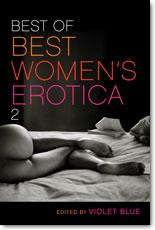

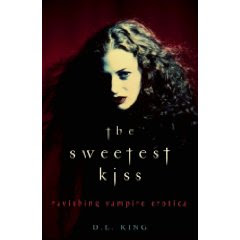


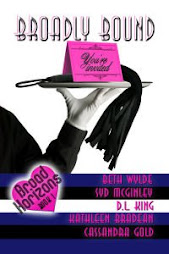.jpg)
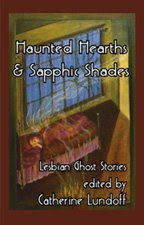

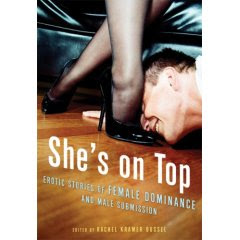








No comments:
Post a Comment